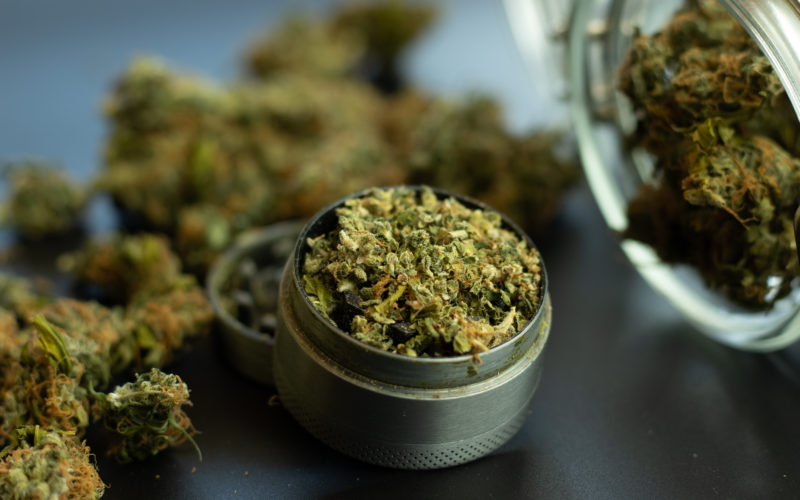You are here
Home 🌿 Medical Cannabis News 🌿 Study Suggests Cannabis May Alleviate Symptoms of Obsessive-Compulsive Disorder 🌿Study Suggests Cannabis May Alleviate Symptoms of Obsessive-Compulsive Disorder

Inhaling cannabis may yield a temporary relief from symptoms of obsessive-compulsive disorder, according to a new study out this month.
The study, conducted by researchers with Washington State University and published in the Journal of Affective Disorders, suggests that medical cannabis could serve as a viable treatment from those affected by OCD. The researchers worked with 87 individuals self-identifying with obsessive-compulsive disorder. The participating patients then “tracked the severity of their intrusions, compulsions, and/or anxiety immediately before and after 1,810 cannabis use sessions spanning a period of 31 months,” according to an abstract of the study.
“Patients reported a 60% reduction in compulsions, a 49% reduction in intrusions, and a 52% reduction in anxiety from before to after inhaling cannabis. Higher concentrations of CBD and higher doses predicted larger reductions in compulsions,” the researchers wrote. “The number of cannabis use sessions across time predicted changes in intrusions, such that later cannabis use sessions were associated with smaller reductions in intrusions. Baseline symptom severity and dose remained fairly constant over time.”
“Using a large dataset of medical cannabis users self-medicating for symptoms of OCD, we found that for the vast majority of cannabis use sessions individuals reported reductions in intrusions [unwanted thoughts or impulses], compulsions, and anxiety. … [R]esults indicated that after inhaling cannabis, ratings of intrusions were reduced by 49 percent, compulsions by 60 percent, and anxiety by 52 percent,” they continued, as quoted by a blog published over at NORML. They concluded by offering that the study suggests “inhaled cannabis may acutely reduce symptoms of OCD,” while noting that, collectively, the “results indicate that cannabis may have short-term, but not long-term beneficial effects on symptoms of OCD.”
Issues With The Study
The authors, pointing to a dearth of research on the effects of cannabis on symptoms stemming from obsessive-compulsive disorder, said they sought out to discover three things in their research: “ 1) examine whether symptoms of OCD are significantly reduced after inhaling cannabis, 2) examine predictors (gender, dose, cannabis constituents, time) of these symptom changes and 3) explore potential long-term consequences of repeatedly using cannabis to self-medicate for OCD symptoms, including changes in dose and baseline symptom severity over time.”
They also offered up a caveat to their findings, noting that the 87 participants were “self-selected, self-identified as having OCD, and there was no placebo control group.”
Nevertheless, NORML’s Deputy Director Paul Armentano hailed the findings as yet another encouraging development in the growing body of cannabis research.
“Few studies have assessed the potential efficacy of cannabis for the mitigation of symptoms of OCD. As such, these findings, though somewhat limited by the study’s design, indicate that cannabis – and, in particular, varieties high in CBD – holds promise as a therapeutic option for OCD patients and should be further examined in a more rigorously designed controlled setting,” Armentano said.
According to the Anxiety and Depression Association of America, obsessive-compulsive disorder affects “40 million adults in the United States age 18 and older, or 18.1% of the population every year.” A 2015 study found that CBD had demonstrated an efficacy in reducing the behaviors related to a host of disorders, including OCD.
420 Intel is Your Source for Marijuana News
420 Intel Canada is your leading news source for the Canadian cannabis industry. Get the latest updates on Canadian cannabis stocks and developments on how Canada continues to be a major player in the worldwide recreational and medical cannabis industry.
420 Intel Canada is the Canadian Industry news outlet that will keep you updated on how these Canadian developments in recreational and medical marijuana will impact the country and the world. Our commitment is to bring you the most important cannabis news stories from across Canada every day of the week.
Marijuana industry news is a constant endeavor with new developments each day. For marijuana news across the True North, 420 Intel Canada promises to bring you quality, Canadian, cannabis industry news.
You can get 420 Intel news delivered directly to your inbox by signing up for our daily marijuana news, ensuring you’re always kept up to date on the ever-changing cannabis industry. To stay even better informed about marijuana legalization news follow us on Twitter, Facebook and LinkedIn.




